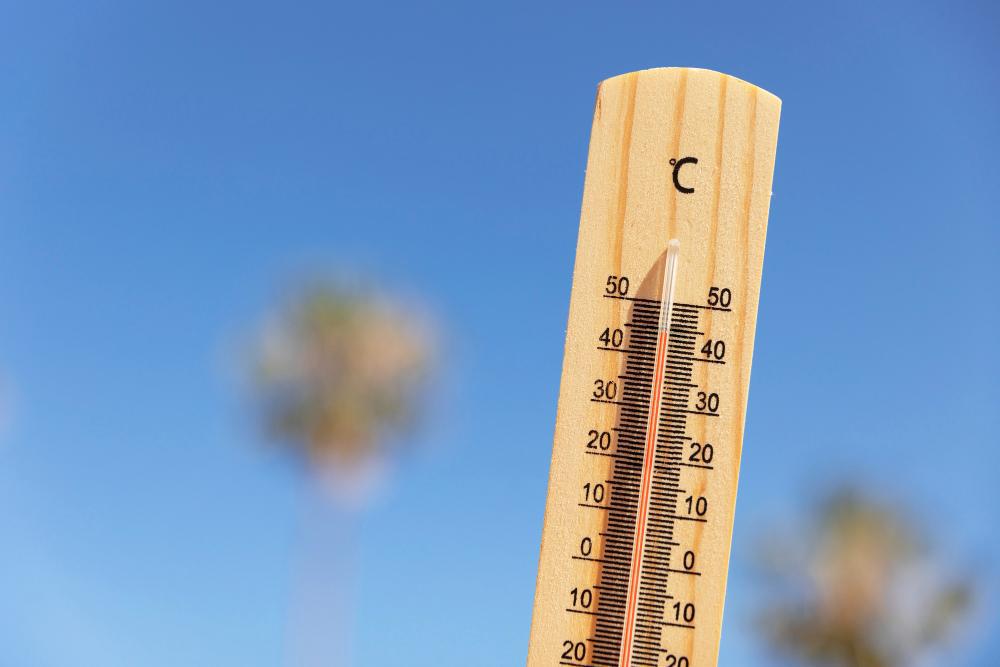Phoenix Faces ‘Endless Summer’ as 100 Days of 100-Degree Temperatures Continue
Phoenix has officially entered what feels like an “endless summer,” enduring over 100 days of triple-digit temperatures.
This streak of relentless heat has shattered records and left residents wondering when relief might come. As the mercury continues to rise, the city braces for more scorching days ahead.
A Historic Heatwave
The summer of 2024 has been one for the history books in Phoenix.

Source: Anna Sullivan/Unsplash
Temperatures soared past 100 degrees Fahrenheit for 100 consecutive days, the longest such streak in the city’s recorded history.
Why Is Phoenix So Hot?
Phoenix’s location in the desert southwest makes it naturally prone to high temperatures, but this summer has been unusually brutal.

Source: Wikimedia
Experts point to a combination of climate change and persistent high-pressure systems as the primary culprits for the record-breaking heat. These factors have created the perfect conditions for an extended heatwave.
The Impact on Daily Life
Residents are feeling the heat in more ways than one. From rising electricity bills due to increased air conditioning use to changes in daily routines to avoid the peak heat, the impact is widespread.

Source: Freepik
Local businesses have also adapted, with many shifting hours or offering special deals to beat the heat.
Health Concerns on the Rise
The extreme heat has not only been uncomfortable but dangerous. Hospitals have reported an uptick in heat-related illnesses, such as heat exhaustion and heatstroke.

Source: @decemergency/Instagram
Vulnerable populations, including the elderly and those with preexisting health conditions, are particularly at risk during these scorching days.
The Role of Urban Heat Islands
Phoenix’s status as a sprawling urban heat island has exacerbated the effects of this summer’s heatwave.

Source: Freepik
With vast expanses of concrete and asphalt that absorb and retain heat, temperatures in the city can be significantly higher than in surrounding rural areas.
Efforts to Keep Cool
Despite the heat, Phoenix residents are finding creative ways to stay cool. From early morning swims and late-night walks to community cooling centers offering a respite from the sun, people are making the best of a sweltering situation.

Source: Freepik
Local parks and recreational centers have also seen a surge in attendance as residents seek refuge.
The Environmental Toll
The relentless heat has taken a toll on Phoenix’s environment as well. Even the area’s heat-resistant trees and plants are struggling to survive, and water usage has spiked as residents try to keep their landscapes maintained.

Source: Freepik
Additionally, the heat has put a strain on the local power grid, leading to concerns about potential outages.
What About the Wildlife?
The heatwave hasn’t spared Phoenix’s wildlife, either. Shelters and nonprofit animal agencies are having to adapt to the extreme temperatures in order to care for animals in need.

Source: Lenstravelier/Unsplash
Wildlife, too, are facing challenges as they struggle to find sources of food and water in the scorching desert landscape. “We stopped a number of [traffic] accidents from happening because now the animals don’t have to travel across the dangerous situation just to get a drink of water,” said AZGFD’s habitat planning program manager Joseph Currie.
Cooling Centers Established
In response to the heatwave, Phoenix has set up cooling centers throughout the city to provide relief for those without access to air conditioning.

Source: Freepik
These centers offer a place to rest and cool off during peak hours of heat and also provide resources for staying safe in extreme temperatures.
Residents Adapt and Overcome
Despite the challenges, the people of Phoenix remain resilient.

Source: Freepik
Many have adjusted their daily lives to cope with the heat, and community spirit is strong as residents support each other through the heat.
When Will the Heat Break?
As Phoenix endures its 100th day of 100-degree temperatures, many are asking: when will the heat break?

Source: NASA Goddard Space Flight Center/Wikimedia Commons
Meteorologists predict a cooling trend in the coming weeks, but with the current climate patterns, it’s uncertain. For now, Phoenix residents continue to navigate an “endless summer” with more patience.
